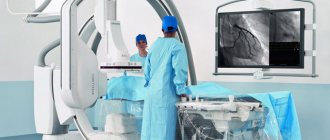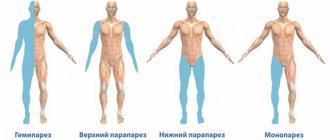Consultation via Skype or WhatsApp is available.
A panic attack is a sudden, uncontrollable attack of severe, “peak” anxiety that has no real and justified cause. This condition is accompanied by severe fear and bodily symptoms - rapid heartbeat, shortness of breath, heaviness and pain in the chest, excessive sweating, trembling in the body.
Such attacks can occur not only during the day, but also at night. There is no control of consciousness in sleep - anxiety can manifest itself in threatening, frightening dreams, or it can manifest itself as a panic attack. During the day, a person keeps all emotions to himself, but at night, control weakens, and an attack occurs. Panic attacks in a dream have a certain danger to human health; one should not neglect or underestimate the possible adverse consequences. Quality sleep is a necessary condition for complete restoration of physical and mental strength. During an attack, there is a sharp awakening with a painful feeling of anxiety and fear, accompanied by the same bodily symptoms: rapid heartbeat, shortness of breath, heaviness and pain in the chest, excessive sweating, trembling in the body. Several such nights - and this will lead to a deterioration in general well-being, irritability, decreased performance, i.e. quality of life will be lost.
Panic attacks during sleep provoke the development of insomnia. It seems to a person that if he does not sleep, this will help avoid an attack. Going to bed is delayed for various reasons. The very thought that you need to go to bed soon causes anxiety and fear.
Such attacks can occur in children, adolescents, and adults; People who have a more sensitive emotional system are most susceptible to them. It is not always possible to immediately recognize that this condition is a panic attack in sleep, but the fact that the quality of night sleep suffers is a serious argument for consulting a psychiatrist or psychotherapist.
This condition is closely related to both biological and psychological causes; it is a disorder that requires professional help from a psychiatrist or psychotherapist.
Causes of presyncope (why it occurs)
Let's first figure out what are the causes of presyncope. As mentioned above, a fainting state occurs due to the fact that the brain stops receiving the required amount of blood. But there are many other factors that can lead to this condition. The leading position among them is in intoxication of the body, which is caused by cancer and infectious diseases.
These include the following pathologies and diseases:
- intestinal infections of various etiologies;
- parasitic infection;
- thyroid diseases;
- viral hepatitis in acute or chronic form;
- hypotension;
- poisoning with chemical and toxic substances;
- various diseases of the cardiovascular system: arrhythmia, ischemic disease, heart failure.
The development of presyncope is promoted by dehydration, and pregnant women are often exposed to it. In these cases, an attack occurs due to insufficient blood volume necessary for normal functioning of the body.
There are other causes of fainting. These include: alcohol intoxication, tobacco addiction, congestion in the gallbladder, etc. The level of glucose in the blood is also one of the causes of pre-fainting. Since its increase or decrease can cause hypoglycemic fainting in a person. In this case, a complete examination of the pancreas is necessary, and consultation with a doctor regarding the necessary dietary therapy and level of physical activity. If these measures are taken on time, the development of such a serious disease as diabetes can be prevented.
Types of tremor
Neurologists classify shaking hands according to the types of occurrence:
- Physiological tremor. It is not uncommon for hands to begin to shake due to nervous tension, stress or muscle strain.
- Anxiety disorders. With a neurological cause of tremor, other problems come with it: insomnia, nausea, nervousness, increased fatigue. As you might have guessed, the cause can be severe stress.
- Thyroid gland dysfunction. Tremor can be one of the symptoms of thyrotoxicosis. Other signs indicating this disease are weakness, causeless anxiety, rapid heartbeat, shortness of breath, and sleep disturbances.
- Essential tremor. In this case, the hands shake in a certain position. Most often, this tremor is inherited and does not have serious consequences.
- Parkinson's disease. This is a very serious disease that is common in older people. With it, the patient's hands shake during calmness. Parkinson's has a number of associated symptoms: loss of balance, deterioration of coordination, development of memory loss, amnesia and others.
Signs and symptoms of presyncope: dizziness, nausea
Symptoms of presyncope are characterized by sudden development, which is usually provoked by certain factors. A stuffy room, tight clothing, stressful situations, excessive physical activity, eating - all this can contribute to the onset of an attack.
The most characteristic symptom of presyncope is dizziness, which may be accompanied by nausea. This indicates disturbances in the functioning of the human autonomic system.
There is a certain risk group of people for whom the presyncope may be permanent. These are people suffering from hypotension (low blood pressure), chronic anemia (low hemoglobin level in the blood, less than 100 units), bradycardia (low heart rate, less than 40 beats).
Any of the described signs is a serious reason to see a doctor. But, since an attack of pre-fainting can occur at any time and in any place, it is necessary to have at least a general understanding of how to provide first aid to the victim or yourself at home.
Prevention of hand tremors
Simple, but extremely effective recommendations will help avoid the development of the disease and generally have a positive effect on the condition of your body:
- Start playing sports, walking outside and any other type of muscle activity;
- Find time every day to rest and relax;
- Practice fine motor skills with your finger, take up crafts or a similar hobby;
All of the above tips do not exclude visiting the dentist and identifying the cause of shaking hands. For this disease, we strongly recommend visiting a specialist to rule out or detect serious diseases.
What to do if you feel faint: first aid
All first aid techniques during a pre-fainting state are aimed at preventing the onset of full-fledged fainting. Let's look at all the necessary steps in detail.
- The first is to provide oxygen access to the room, and, if possible, take a comfortable position. Remove all objects that put pressure on the chest and neck (scarf, tight collar, tie). To better saturate the blood with oxygen, it is necessary to take rhythmic inhalations and exhalations. If the breathing process is difficult, ammonia will help. A sweet, warm drink in the form of tea also helps relieve an attack. If you suspect evaporation of harmful substances in the room or a gas leak, you should quickly leave the building and go outside.
- After the crisis has passed, the body must be provided with the required amount of fluid, which involves consuming at least 2.5 liters of water per day. Taking drugs such as Asparkam and Panangin will normalize the balance of electrolytes in the blood and ensure normal blood supply to all organs. And, of course, it is necessary to establish the cause of the pathology.
- If you have chronic fatigue syndrome, you must take the necessary vitamins and minerals and ensure all conditions for normal work and rest. In case of hypotension or anemia, the cause of this condition should be immediately determined. Since some pathologies require immediate medical attention.
Everything we talked about in this article needs to be known and remembered by every person. Because presyncope attacks develop suddenly, which can pose a serious threat to life. After all, at this moment a person can cross the roadway or drive a car. The most important thing when providing first aid to yourself or your loved ones is to prevent full-blown fainting from developing.
Primary appointment with a neurologist: 1850 RUR.
Sign up Online 5% discount when registering from the site
How to get rid of hand tremors
Depending on the type of tremor, there are various treatment methods; below are general tips for getting rid of this ailment:
- Reduce your stress levels. Make a plan to avoid conflict situations and not fall out of balance. Try to master breathing techniques, meditation, and if necessary, consult a psychotherapist.
- Start taking sedatives. You should not select strong medications on your own; only a specialist can prescribe them. Consider plant-based sedatives.
- Try to drink less coffee and energy drinks, they seriously weaken the nervous system.
- A stable daily routine and normal sleep patterns help normalize the condition.
- Give up bad habits such as alcohol and smoking.
- During an attack of tremor, pick up something heavy, unless there is a physical reason for the occurrence.
- If you are undergoing treatment, check with your specialist about any side effects that may cause tremors.
- Do not self-medicate.
Wilson-Konovalov disease as a cause of hand tremors at a young age
Often, we do not immediately pay attention to the appearance of shaking or shaking of hands in ourselves or loved ones. It is especially alarming if this symptom appears at a young age. What is the reason? Dealing with this is the task of a specialist...
Test yourself: stand up, stretch your arms in front of you, try to touch your nose with your eyes open and closed*. If during this simple exercise you experience hand tremors, then you should consult a neurologist.
*The test with closed eyes is recommended to be carried out in the presence of an assistant who will help assess the presence/absence of hand tremors, and, if necessary, support and protect from falling.
EXPERT OPINION
Neurologist advises: Tamara Fedorova , Candidate of Medical Sciences, Associate Professor, member of the working group on rare and orphan diseases of St. Petersburg, on the development of a standard for maintaining registers and specialized medical care for patients with Wilson-Konovalov disease
Hand tremors at a young age
The appearance of hand trembling (tremor) at a young age is a rare and unusual phenomenon. More often this phenomenon is observed in old age. Therefore, people do not immediately pay attention to this, assuming that the reason is overwork or lack of sleep. However, the cause may be a wide range of serious diseases, including hereditary pathology - Wilson-Konovalov disease or hepatolenticular degeneration.
What is Wilson-Konovalov disease?
Wilson-Konovalov disease is a severe progressive chronic disease associated with impaired copper metabolism in the human body and has a hereditary predisposition. Due to a disruption in the synthesis of enzymes necessary for removing copper from the body, copper is retained and accumulates in its tissues, affecting organs, primarily the liver and brain. It is very important to diagnose Wilson-Konovalov disease promptly and correctly, as lifelong treatment is required. Without treatment, the disease progresses, irreversibly affecting the liver, brain and kidneys, quickly leading to death.
Depending on which organs suffer from excess copper, five main forms of the disease are primarily distinguished:
- abdominal;
- rigid-arrhythmic hyperkinetic;
- trembling;
- trembling-rigid;
- extrapyramidal-cortical.
However, the disease can manifest itself with many different symptoms associated with damage to the liver and brain, which makes diagnosis difficult in its early stages. In my medical practice, there were patients with hepatolenticular degeneration who received treatment for other diseases for months and even years.
Neurological symptoms include
- trembling (tremor) of the hands and other parts of the body;
- muscle tone and spasms in the muscles, complicating their mobility;
- violation of body position and gait;
- involuntary movements of the body;
- speech, facial expression and writing disorders;
- mental disorders.
To make a correct diagnosis, other diseases that may cause tremor at a young age :
- panic and anxiety disorders;
- hereditary and acquired diseases of the nervous system (essential tremor with a hereditary predisposition; Parkinson's disease; multiple sclerosis and others);
- increased thyroid function (hyperthyroidism);
- withdrawal syndrome when giving up alcohol in people with alcohol dependence;
- taking psychostimulants (amphetamines and other stimulants);
- taking certain medications (some antidepressants, asthma medications, etc.).
Why does Wilson Konovalov's disease cause tremors in the hands?
The accumulation of copper in the brain leads to the death of neurons. This causes damage to various parts and structures of the brain responsible for speech, motor and cognitive functions. Trembling (tremor) occurs due to damage to brain structures related to the regulation of muscle tone and voluntary control of movements (cerebellum, basal ganglia).
Trembling is one of the common symptoms of Wilson-Konovalov disease, very often it is the first sign of the disease and begins in the upper extremities, then spreading to the legs and head. At rest, trembling is usually absent, but appears when changing body position, physical activity and emotional stress.
When should you consult a neurologist if your hands are shaking (tremors)?
The appearance of tremor (shaking) of the hands in all cases is a reason to consult a doctor. If the tremor is permanent and is not associated with excessive physical activity, alcohol intake or excessive nervous tension, a consultation with a neurologist is necessary to clarify the cause and make a diagnosis.
My clinical interests include the diagnosis and treatment of Wilson-Konovalov disease and diseases of the nervous system that can cause hand tremors at a young age.









